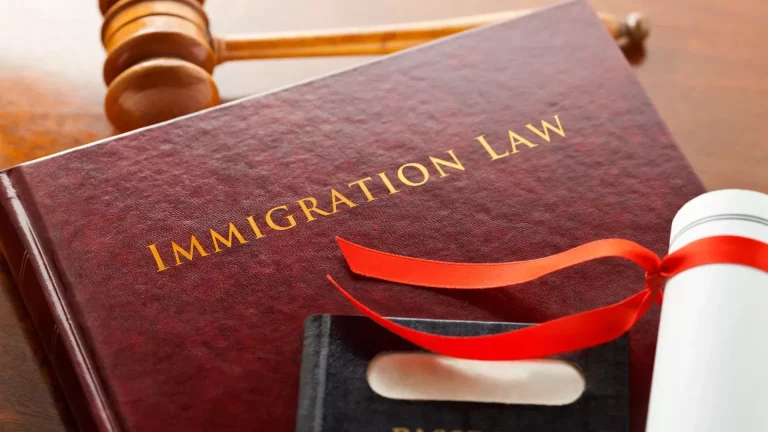Divorce Problem Solution – Expert Advice and Tips
Have you ever felt overwhelmed by the emotional and legal complexities of divorce? At TheBostonDivorceLawyer, we understand the challenges you may face.
Let us guide you through the divorce process with practical solutions tailored to your unique situation.
The best solution to divorce problems is through mediation where parties can reach agreements with the help of a neutral third party. This process can help minimize conflicts and reduce the emotional and financial burdens associated with divorce proceedings.
Causes of Divorce
Let me explain, communication issues, money troubles, cheating, and different values are common reasons couples split up. When partners don’t talk or listen to each other, they may feel disconnected. Financial problems can also cause stress in a marriage. Infidelity makes it hard to rebuild trust. Other reasons for divorce include lack of intimacy or simply drifting apart.
Let me explain, it’s very important for couples to tackle these problems early on. Seeing a therapist can help them talk and connect better. Spending quality time together and making their relationship a priority is key. By addressing their issues and working together, couples can find solutions and strengthen their bond.
Communication Issues
For real, when two people can’t talk to each other well, it can cause misunderstandings, hurt feelings, and make their relationship worse. This might happen for several reasons, like different ways of communicating, emotional walls, or old arguments that haven’t been solved.
A common problem in divorce is when one or both people can’t say what they feel and need clearly. This means important issues don’t get talked about, leading to more stress and fights. Another issue is when one or both people don’t really listen to each other, making it hard to agree on solutions.
My point is, sometimes, in a divorce, one or both people might start shouting, name-calling, or avoiding tough talks. These bad communication habits can make the situation even worse.
To fix these communication problems, both people need to be ready to listen, share their thoughts and feelings honestly, and try to find middle ground. Getting help from a mediator or counselor can also make it easier to talk and find solutions that work for both sides.
Financial Problems
When all is said and done, when a couple decides to split up, they need to divide their property and debts. This process can be tricky and might cause arguments about who gets what. One or both people might also face money problems after the divorce is final.
After a divorce, income can drop for one or both people because they have to support separate households. This can make it hard to cover living costs, especially if one person earned most of the money before. Keeping the same lifestyle as before might no longer be possible, causing financial strain.
Besides the drop in income, a divorce also involves splitting assets and debts. Believe it or not, this can lead to extra financial burdens, like mortgage payments, credit card debt, or loans. Figuring out how to divide everything fairly can be tough, especially if there are disagreements.
Another money issue that can come up after a divorce is the need to set up separate bank accounts and budgets. Managing finances alone can be difficult, especially if one person took care of the money matters during the marriage. Learning to budget and save well can take time and might need the support of a financial advisor.
Legal Process
To be fair, getting a divorce involves a few key steps:
- Filing Paperwork: One person starts the process by filing an official request for divorce in court. This document explains why they want the divorce and may include requests about splitting money or property, deciding child custody, and getting support payments.
- Notifying the Other Party: The other person must be given the divorce papers, which officially lets them know that a divorce is being requested. They then get the chance to respond.
- Reaching Agreements: The couple might try to work things out through talks or mediation to agree on important issues like dividing property and who gets custody of any children. If they can’t agree, the case will go to trial and a judge will decide.
- Following Rules: Throughout this process, both people must follow court rules, meet deadlines, and provide any requested information and documents. Having a lawyer is important to help protect each person’s rights and guide them through the legal details.
Though going through a divorce can be tough both emotionally and financially, it’s necessary to legally end the marriage so both people can start their new lives separately.
Emotional Support
So to speak, it’s important to get emotional support during this tough time. You can turn to friends, family, or even a therapist or counselor. Talking to someone and having their support can really help you handle your feelings and go through the divorce process.
Having emotional support can help you understand and express your feelings. It gives you a safe place to be open about how you’re feeling. Sometimes, just having someone listen without judging can be a great comfort.
Believe it or not, support from others can also help you deal with the changes that come with divorce. It can make you feel less alone and more understood. It can give you the strength to face the challenges ahead.
Remember, it’s okay to ask for help and lean on others during this time. Seeking emotional support shows strength, not weakness. You deserve to have people around you who can help you through this difficult time. Emotional support can make a big difference as you work through the divorce and find the best outcome for you.

Summary
Addressing communication issues, seeking counseling, and considering mediated divorce options can help couples work through through the challenges of divorce.
What TheBostonDivorceLawyers is recommending to go ahead with is, by prioritizing effective communication, seeking professional help, and exploring alternative dispute resolution methods, couples can find constructive ways to resolve conflicts and make the divorce process more amicable and less traumatic for all parties involved. Ultimately, proactive measures and a willingness to compromise are key to finding solutions to the complex problem of divorce.







